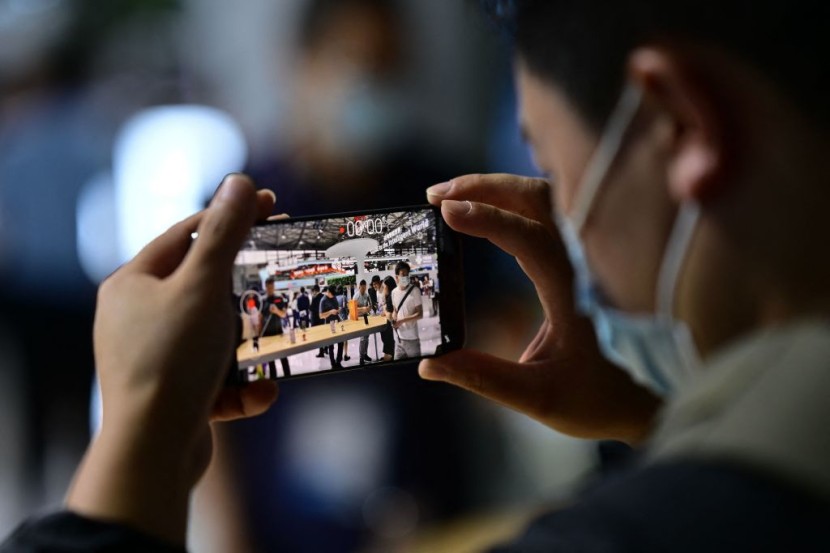
A Firstpost article highlighted the continuing issue of smartphone companies struggling with their imaging solutions for both photography and videography, claiming devices have been "designed to capture the beauty of only white or fair-skinned people." It further claimed the algorithms working behind the lenses giving out images have been designed for white or fair-skinned people.
Underrepresenting or misrepresenting people with darker skin tones in photographs was a "well-documented problem stemming from historical biases," according to the piece. "Photography and films have traditionally prioritized and calibrated imaging technologies based on lighter skin tones," the article added.
And with the help of technology and the proliferation of cameras, the white and fair skin bias not only persisted but also exacerbated.
Some of Firstpost's evidences include the following:
Failing to Capture the Right Skin Tone
Almost all smartphone cameras struggle to capture dark-skinned people even with perfect lighting conditions, the article stated. All the more would phones have a tricky time capturing pictures if lighting conditions worsen.
Even Xiaomi, the article argued, still struggled to perfectly nail the skin color tones even with its partnership with Leica. It is also the same for OnePlus and its partnership with Hasselblad.
Phones usually blew up the highlights of the skin and gave subjects weird-looking patches of white skin, or made them look darker than they actually are.
In 2021 and 2022, Google made some special adjustments to its Pixel phone's camera algorithms after they were called out on social media for what Firstpost called the "terrible way their cameras handled people of color."
Oversaturating Colors
Firstpost also argued that human brains are designed to favor saturation and contrast over color accuracy, especially when looking at photos on a display. With this in mind, smartphone makers tend to design cameras to oversaturate images.
The issue affects Samsung, as well as Chinese smartphone makers like Xiaomi and OnePlus. It is also the issue plaguing budget smartphones like Realme and other budget Xiaomi models.
"As a result, certain people get this very weird yellow looking on their skin," the article added. "Others get a very weird reddish hue to their skin."
Facial Recognition Features
The issue regarding facial recognition features is plaguing Asian people, especially those with monolid eyes or epicanthic folds. It also plagued dark-skinned people, the article added.
"When Apple introduced their facial recognition tech (FaceID in iPhones), they were using a TrueDepth camera, which works by projecting thousands of invisible dots onto your face and analyzing them to create a depth map of your face," the article detailed.
As a result of this, Apple's FaceID worked well whether or not the user had ample lighting.
However, the CBC's Mary-Jean Cormier wrote last May that FaceID still had some issues regarding the accidental or intentional unlocking of iPhones by other family members who look like the actual user, such as twins, brothers, parents, or relatives.
Other smartphone marketers tried to copy Apple's tech but only used regular front-facing cameras, especially for budget-friendly Chinese smartphones.
"Their systems basically compared two images, the one that it saw when you tried to unlock the phone, with the image that you 'trained' your device while setting up," Firstpost added.
Beauty Filters
Regarding beauty filters, the article concluded, it is a tricky matter to tackle and the "worst ways in which tech companies showcase their disregard for people with dark skin or different facial features."
Most beauty filters obliterate certain facial features and brighten the subject's skin tone exponentially.
"What's worse is the psychological effect that it has on people and communities," the article added, "it is as harmful as those skin-whitening creams themselves."
While tech companies or smartphones are not inherently racist, Firstpost argued that camera technology is influenced by white people that work for US companies.
EDITOR'S NOTE: HNGN does not, in any way, agree with the insinuation of the writer from Firstpost that white Americans are racist. While we acknowledge racism is real, and is a real problem, we do not believe a generalization of an entire race of people is appropriate.
"What tech companies and smartphone makers can be accused of is ignorance," the piece argued.
© 2026 HNGN, All rights reserved. Do not reproduce without permission.








